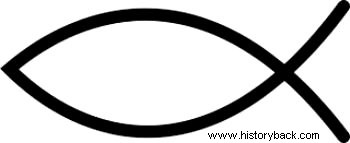The Christianity it is based on faith in Jesus Christ and appears in the 1st century, in Palestine.
There are several strands of Christianity such as Catholicism, Protestantism and more recently, Pentecostalism.
Origin
For Christians, Jesus Christ was the son of God, who became man and came into the world to preach love for God and neighbor. However, he was persecuted and killed by the Romans, who did not accept his ideals.
Jesus appeared as a new leader who called himself the savior of the world and, thus, was a threat to the Roman Empire that considered him a blasphemer.
After his death, the 12 apostle-followers who had received the mission to spread the ideas of Jesus, advanced through the world with the commitment to fulfill their task.
Being recognized, the propagated ideas gained followers. Christianity is born, whose name comes from the word Christ, which means consecrated person.
In Rome, Peter, the disciple to whom Jesus bequeathed the task of taking care of his Church, was martyred. There were also held several councils. In this way, the city stood out over the years until it became the seat of the Catholic Church.
Belief in Jesus gained more adherents. His doctrine spread throughout the Roman Empire. As Christians refused to worship the Roman gods, they began to be persecuted.
Thus, Christians gathered hidden in catacombs to pray, until around 313, the Edict of Milan forbade the persecution of Christians. From then on, Christianity grew until it became the official religion of Rome in 392.
Read more :
- Roman Empire
- Roman Emperors
Christian Beliefs
While it is possible to find some differences in interpretations of Christian belief, most religions that follow Jesus Christ believe:
- The Bible is the holy book and is divided into two parts:Old and New Testaments. The Old Testament recounts events before Jesus' birth, while the New deals with events from his birth.
- There are three persons (Father, Son and Holy Spirit) who form one God. It is the Holy Trinity.
- After death people have eternal life, and they go to specific places through their earthly behavior.
- Christ's return will mark the end of time and a new era in the world.
Christian Feasts
The main Christian celebrations are:
- Christmas, on December 25th, when the birth of Jesus is celebrated;
- Easter, when the Resurrection of Jesus is celebrated, which would have taken place 3 days after Jesus' death on Good Friday;
- Pentecost, whose word means 50 days after Easter, recalls the coming of the Holy Spirit upon the faithful.
Of course, each branch of Christianity celebrates these dates in a specific way.
Christian Symbols
Despite the differences, Christianity has symbols common to almost all churches. The main ones are:

The cross is the greatest Christian symbol, because according to the faithful, it was where Jesus died for humanity

The fish, whose Greek initials meant Jesus Christ, God, Son, Savior
 Bread and wine or wheat and grapes, which symbolize the Last Supper of Jesus Christ
Bread and wine or wheat and grapes, which symbolize the Last Supper of Jesus Christ
Islam and Judaism
During Prehistory and Antiquity, people practiced animistic and polytheistic religions.
However, the Bible reports that God would have revealed to Abraham the existence of one God, thus starting monotheism. This would be practiced from the Middle East and would spread across Europe.
Christianity, like Islam and Judaism, is an Abrahamic religion, as it has its origins in Abraham. Its emergence, in chronological order, is first Judaism, then Christianity, and finally Islam.
Christian Churches
Over the centuries, Christian doctrine has penetrated into various societies and cultures that had their own views on certain theological and disciplinary matters.
To resolve them, a council is convened with the church's bishops who must reach a conclusion on the controversial topic.
In a dispute known as the Eastern Schism, in 1054, the Roman Catholic Church and the Orthodox Apostolic Catholic Church are formed.
Years later, the Catholic Church is again divided with the Protestant Reformation, started by Martin Luther.
So there are several branches that make up the Christian religion.
Learn more :
- Christian Philosophy
- Patristic
- Medieval Philosophy
In Brazil and in the World
Christianity arrived in Brazil brought by Franciscan religious and, later, Jesuit priests at the time of colonization. With the arrival of the priests, the Indians began to be catechized.
Today, Christianity is the religion with the largest number of believers in the world.
Know more:
- Catholicism
- Protestantism
- Islamism
- Judaism
- Paganism
